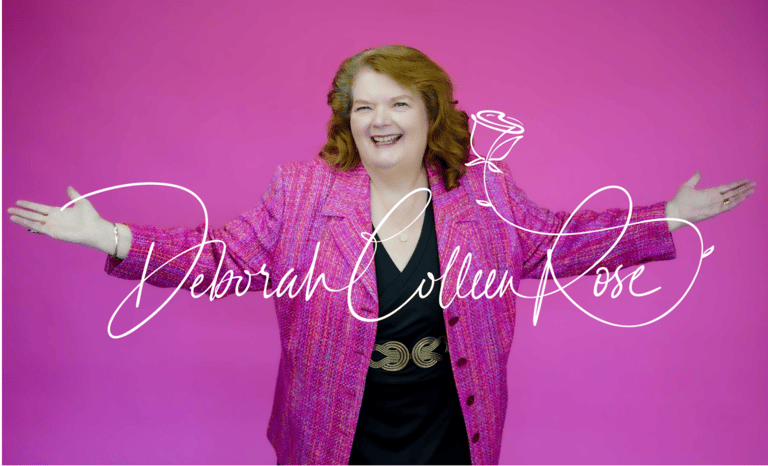Communications and Core Emotional Responses
Deborah Colleen Rose
9/29/20244 min read


Taken from the curriculum of the Council of Families for Children - Sick Can Be Fixed
When we know our true emotions, we’re in control of our emotions. Only when we are in control of our emotions can we accurately display our trust, empathy, and confidence. Lose control—and we spin into confusion, depression, and doubt. Learn how to bring your emotions into balance and you improve communication in all your relationships, providing a big boost for your emotional intelligence. The way to do this is to C.H.U.N.K. down till you reach your core emotional response to a situation.
C = Clear/Concise
H = Honest
U = Uninhibited
N = Natural/Normal
K = Kind
Understanding and owning your emotions benefits you by:
· Allowing you to navigate satisfying, meaningful relationships
· Helping you understand other people
· Enabling you to understand yourself
· Empowering your communication process
· Making you “heart smart” – emotionally intelligent
Know what you are really feeling by taking the time to ask yourself – “What is my biggest fear ……or “Why do I feel hurt?” or “Why is this making me happy?” and keep asking yourself these questions until you have a core emotion. For most people core emotions are joy, love, grief, anger and guilt. So until you hit one of these levels, keep asking yourself the right question –“What am I really feeling?”
When you practice this, you are engaging in a strategy called chunking.
Any subject can be viewed in larger or smaller parts or chunks. By adding new associations, chunking lets you see the matter differently. Chunking up puts the issue in perspective, chunking down gives it a new, narrower focus. Top business negotiators use this technique, probably unwittingly, to find a common ground and thereby close the deal in a manner satisfactory to both sides.
Chunking up = Salad - Meal - Nourishment - Fuel - Energy
Chunking down = Food - Meat - Beef - Steak - Rare T-Bone
When we chunked up, we went from a fairly concise category of FOOD and chunked it up to be even more inclusive to the point that the category now includes anything that could be used as energy. Besides food, energy could be nuclear, gasoline, batteries and so on.
The core is where you find the seed of good communications
When we chunked down, using the same category, FOOD became very, very precise to the point that not only did we describe a steak but also how it should be prepared.
So when we chunk down to our core emotional response, we are being very, very clear about what we feel and also why we feel that way.
For example, dirty dishes were an issue in my house in regards to how my daughter and I interacted. It got to the point that the kitchen never seemed clean and since that was her “chore”, I think that is all we talked about for days upon days.
Finally, I realized, I had not been chunking down to my core emotional response about this. Yes, I really did have a core emotional response and it was based upon MY model of the world, not hers. To me, seeing all those dishes pile up set off a trigger that my own mother probably is responsible for-(at least for now, I’ll let her take credit for it and I am grinning as I type this), and what a clean kitchen represented to me was being independent and being able to care for a home and yourself. Dirty dishes represented to me her inability to care for herself and would raise that ugly fear for me, every time I saw a dirty dish.
Once I realized this, I understood that my FEAR was that my daughter would not ever be able to care for herself and be self sufficient. So that is exactly what I told her. I’m not sure who was more shocked by that revelation - her or I. However, it did open the door for some very honest and very insightful conversation for us both.
I would like to say that lead to my kitchen being clean all the time. It did not! But it did lead to it being clean more often and also to me being more understanding about it when it wasn’t. I backed off on pushing her and I think she had pity on me and cleaned more often. The bottom line is that we reached a level of agreement that we both “accepted” and it was based upon knowing each other better.
Being honest is always best, though it can be painful to expose yourself to others or it can be painful to reveal your fears and idea. Regardless of what you are saying though, you can also be kind, even when sharing even the most unpleasant feelings and ideas. That is the result of true empathy and caring.
Exercise – Tell Me What You Really Feel
(Pair up into groups of two.)
· Pick a situation or circumstance that occurs regularly in your home that creates conflict or chaos.
· Describe it to your partner.
· How does it make you feel? Is it joy, love, grief, anger and guilt? If it is not, keep asking yourself what you really feel and why until you hit upon one of these emotions.
· Once you reached one of these emotions, share it with your partner, the way you could with your child that is clear, concise, honest, uninhibited, normal and kind.
______________________________________________________________________________
